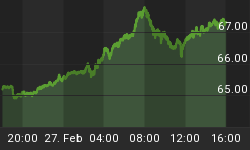In recent weeks we've examined the plans now advancing to mop up some of the excess liquidity the Fed created between 2002-2004. These efforts have included a pronounced slowing down in the money supply growth rate and interest rate hikes. The focus of this commentary will be a tool that is used to combat inflation - both officially and unofficially.
In his book, "War Cycles, Peace Cycles," Richard Hoskins explains how taxes are used by the government to remove excess money from circulation in order to curtail inflationary pressures and to prevent imbalances in the accumulation of wealth. What is not widely known is how modern day governments employ the use of surrogates to tax money out of circulation in a non-official capacity. One such example of surrogate tax collectors are the petroleum concerns, which use their control over the price of gasoline and other fuels to tax consumers, mop up excess liquidity and reduce consumption.
This explains in large part the exorbitant gas price increases Americans have lately had to suffer through. When you couple the unofficial "gas tax" and other energy-related costs with the money supply slowdown initiative (see graph below), can you guess what the outcome will be? You guess right - an economic softening. This graph, which shows the compounded annual rate of change slowdown in MZM, makes an economic slowdown a near-certainty in the months ahead.

On the other hand, as Hoskins attests, the pre-ordained reason for the economic slowdown and higher taxes is to pave the way for the next wave of economic expansion, likely to begin in later 2006 or early 2007.
Writes Hoskins, "Everyone who has paid taxes has wanted to do away with them, but what happens when taxation is abolished? The usury-bankers end up with all the money, and more is left in circulation." (War Cycles, Peace Cycles, p. 14). His famous 4th Law of Interest states that "Interest requires a heavy tax so that money will not be hoarded but circulated to pay interest."
But this time around the economic cycle is different. The leading governments and central banks of the world are combining their efforts to establish a fully integrated global economic order (GEO) that will require a relative balance among the major economies, including the U.S. Hence the coming international taxing authority, which for the time being is being administered by the oil companies and other multinational interests. (Of course, this opens up a Pandora's Box of related issues, such as "taxation without representation," etc. But this we'll leave off for a future commentary).
The extreme rise in the price of a gallon of gas to approximately $2.25 (or higher in some locales) is outrageous if you consider that consumers in many states were paying only about $1.00/gallon back in 1998. Again we must ask, has the supply/demand equation in the petroleum markets changed that much in only seven years to warrant such a price spike? Where is the representation for the beleaguered U.S. consumer who has no voice in the matter of how he must now pay the incredible increase in fuel costs. And let's face it, the excessively high gasoline prices have lasted a lot longer than $1.00/gallon gas did a few years ago (funny how it always seems to work that way).
In truth, the much-bemoaned spike in fuel prices is more a function of manipulation and speculative activity than a true supply/demand imbalance. The imbalance in the market equation is a testament to the excessive greed of the oil cartel than to a squeeze in the supply pipelines.
A highly recommended web site that you might want to visit from time to time is the Oligopoly Watch web site (www.oligopolywatch.com).This fascinating web site documents the ongoing maneuvers of the multinationals and provides the latest news on how oligopolies are usurping control over the lives of individuals and governments. In their petroleum section they point out that the basic economic assumption that higher prices tend to stimulate greater production (or exploration), this has not happened with the oil companies.
A case in point is the recent merger between ChevronTexaco and Unocal. OligolopolyWatch observes, "ChevronTexaco invested its added profits into the oil business, but only by buying up exsiting operations, not by digging new wells or upgrading oil recovery from existing sources. We expect that cash-rich oil companies will follow suit." OligopolyWatch further points out that a mere handful of oil companies, including ExxonMobil and ChevronTexaco, now control over 50% of the oil refining market.
Now another threat faces the consumer in the ongoing battle for control and consolidation of the energy market, namely the potential takeover battle between the China National Offshore Oil Corp. and Chevron for control of Unocal. Here we have an attempt by a state-owned Chinese company to buy a U.S. oil rival, according to the Financial Times of London, which if successful will only further the global economic integration efforts we alluded to earlier.















